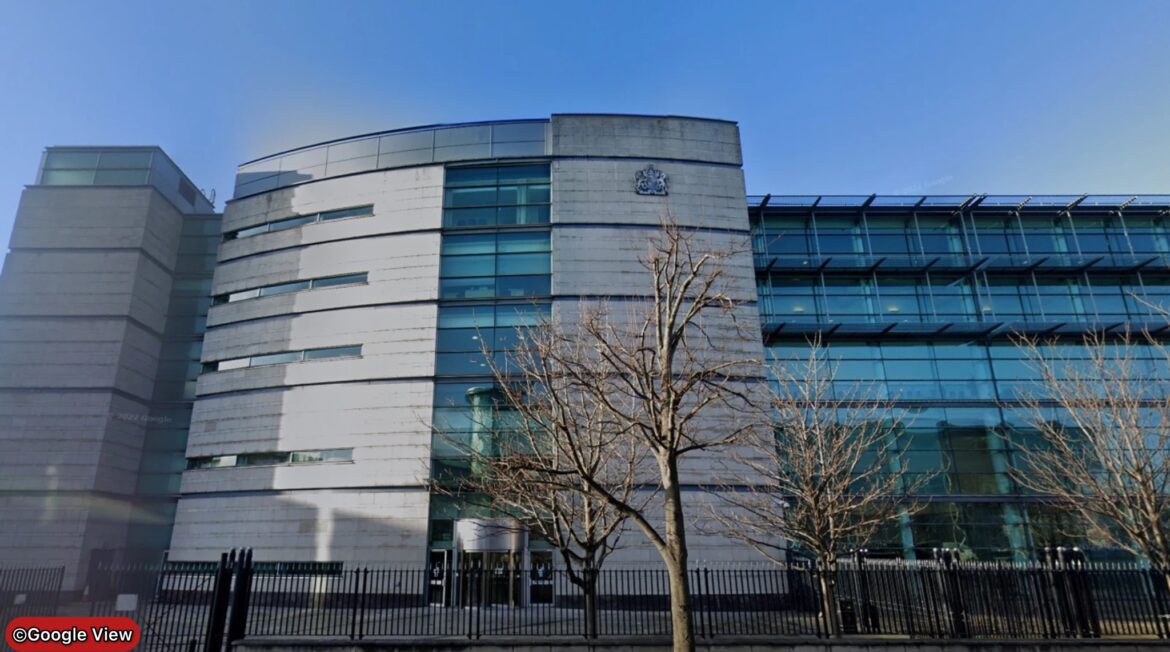A Newtownabbey woman has been fined £30,000 after being found guilty of fraudulently claiming nearly £30,000 in jobseeker’s allowance while failing to declare her capital assets.
Mazine Davis, 66, of Glebe Manor, was convicted at Laganside Crown Court on Tuesday of claiming £29,353 in benefits she was not entitled to receive. The fraud was uncovered following an investigation by the Department for Communities (DfC), and Mrs Davis has repaid all wrongfully claimed money in full.
The case comes as Northern Ireland’s Communities Minister Gordon Lyons intensifies his “zero-tolerance” crackdown on benefit fraud, which costs the state an estimated £160 million annually. Earlier this year, Mr Lyons announced plans to “name and shame” those convicted of fraudulent claims as part of his campaign to protect the integrity of the welfare system.
Minister’s Moral Crusade Against Fraud
Speaking to the Northern Ireland Assembly earlier this year, Mr Lyons framed benefit fraud as both a financial and moral issue. “When individuals cheat the system, they are not stealing from a faceless entity; they are taking from their neighbours, their friends, and their fellow citizens,” he declared.
“They are undermining the very safety net that so many rely on. Therefore, let me be unequivocal: I am taking a zero-tolerance approach. I am personally committed to rooting out fraud and ensuring that those who exploit the system face the consequences.”
The minister’s hardline stance includes reintroducing the practice of publicly naming benefit fraud convicts and establishing a Task and Finish Group to examine the department’s current interventions. The DfC’s Benefit Security Division, which made around 20,000 investigative contacts last year, aims to increase that figure to 30,000 this financial year.
Scale of the Problem
According to official figures, benefit fraud and error in Northern Ireland amounts to approximately 2.9% of overall benefit expenditure, equating to around £243 million per year. However, critics argue that the actual scale of fraud prosecutions remains surprisingly low given these estimates.
Traditional Unionist Voice leader and North Antrim MP Jim Allister has raised concerns about the Executive’s approach to fraud recovery in the House of Commons. He claimed that in the last five years, there have been only between 200 to 300 fraud pursuit cases in Northern Ireland, touching on just £4.5 million.
“There is a lot more fraud in the benefits system in Northern Ireland than £4.5 million,” Mr Allister told MPs. He suggested that some in the Northern Ireland Executive may be “less rigorous than they ought to be” on fraud because recovered money goes to the Treasury rather than remaining in Northern Ireland’s block grant.
“That, for some of them, shamefully, does seem to create a disincentive to pursuing fraud recovery with the vigour that they should,” he added.
Financial Incentives for Fraud Detection
In a significant development, Communities Minister Gordon Lyons recently announced that HM Treasury has agreed to consider allowing Northern Ireland to keep a share of savings from tackling benefit fraud and error. Currently, all recovered funds return to Westminster.
This is money that normally goes back to the Treasury but we have the opportunity now to reclaim that to invest in public services in Northern Ireland,” Mr Lyons said. “The return on investment here is around 8:1 so this is a really significant development.”
This change could provide a substantial financial incentive for the Northern Ireland Executive to pursue fraud cases more vigorously, potentially addressing the concerns raised by Mr Allister about insufficient enforcement.
Controversy Over ‘Naming and Shaming’
The minister’s plans to publicly identify benefit fraud convicts have sparked debate. Several anti-poverty activists have argued the approach is “misguided” and warned it will increase fear among legitimate benefit claimants who may be deterred from claiming support they are entitled to receive.
Critics suggest that the focus on individual fraud cases diverts attention from larger systemic issues, including the complexity of the benefits system itself and the relatively small percentage that fraud represents of the overall welfare budget. They argue that error and official mistakes account for a significant portion of overpayments, yet receive far less political attention than fraud.
How to Report Suspected Fraud
The Department for Communities has urged members of the public to report suspected benefit fraud, emphasising that reports can be made anonymously. The department receives approximately 10,000 fraud allegations per year and conducts around 25,000 “high risk” scans to identify emerging threats.
Individuals can report suspected fraud:
- Online through the NI Direct website
- By telephone to the dedicated fraud hotline
- In writing to the Department for Communities
All allegations are triaged before being routed to the appropriate team for investigation, with the department emphasising that it takes all reports seriously.
Rebuilding Trust in the System
Minister Lyons has positioned his anti-fraud campaign as essential to maintaining public confidence in the welfare system. “For too long, there has been a sense that the system is not working for hardworking families and people who do the right thing—that it is too easy for some to exploit, while others who genuinely need help are left struggling,” he said.
“That erodes trust. It undermines confidence. And it is not good enough. We must rebuild that trust. We must restore confidence in a welfare system that is fair, transparent, and focused on those who need it most.”
As cases like Mrs Davis’s continue to make headlines, the debate over how to balance fraud prevention with supporting vulnerable claimants seems set to intensify. While the minister pursues his zero-tolerance approach, questions remain about whether the current level of prosecutions truly reflects the scale of fraud in the system, and whether public naming of offenders will deter future fraud or simply stigmatise those who have already been punished through the courts.
The Department for Communities continues to encourage anyone with information about suspected benefit fraud to come forward, while maintaining that the vast majority of benefit claimants are honest and claim only what they are entitled to receive.
Follow for more updates on Britannia Daily



